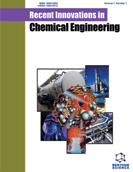Abstract
The presence of large quantities of toxic heavy metals (i.e. cobalt, chromium, lead, cadmium, zinc, etc.) in the environment may be a serious threat to humans. Hence, the development of novel methods able to eliminate these toxic contaminants from wastewater in efficient and economically viable ways is highly desirable. In this work we assayed the ability of two polymers, polyethylenimine (PEI) and its carboxylated derivative (PEI-COOH), to complex heavy metals and to remove them from contaminated water by polymer-assisted ultrafiltration. PEI is able to complex efficiently Ag, Al, Cd, Co, Cr, Cu, Mn, Ni, Pb, Sn and Zn and reduce their concentration in permeate to values < 4 ppm. Interestingly, PEI is very efficient to remove Cr and Sn down to a concentration less than 0.1 ppm. Moreover, PEI-COOH derivative is more efficient than PEI to remove Ag, Al, Cd, Co, Cu, Ni, Pb, and Zn to a concentration less than 0.4 ppm (ICP-OES analysis). Our preliminary results indicate that PEI-COOH is able to complex those metals that are not complexed by PEI, hypothesising that the combined use of these two polymers may be efficiently employed as a powerful strategy for the complete removal of heavy metals from wastewater.
Keywords: Polyethylenimine, Complexation, Ultrafiltration, Wastewater, Metal ions















